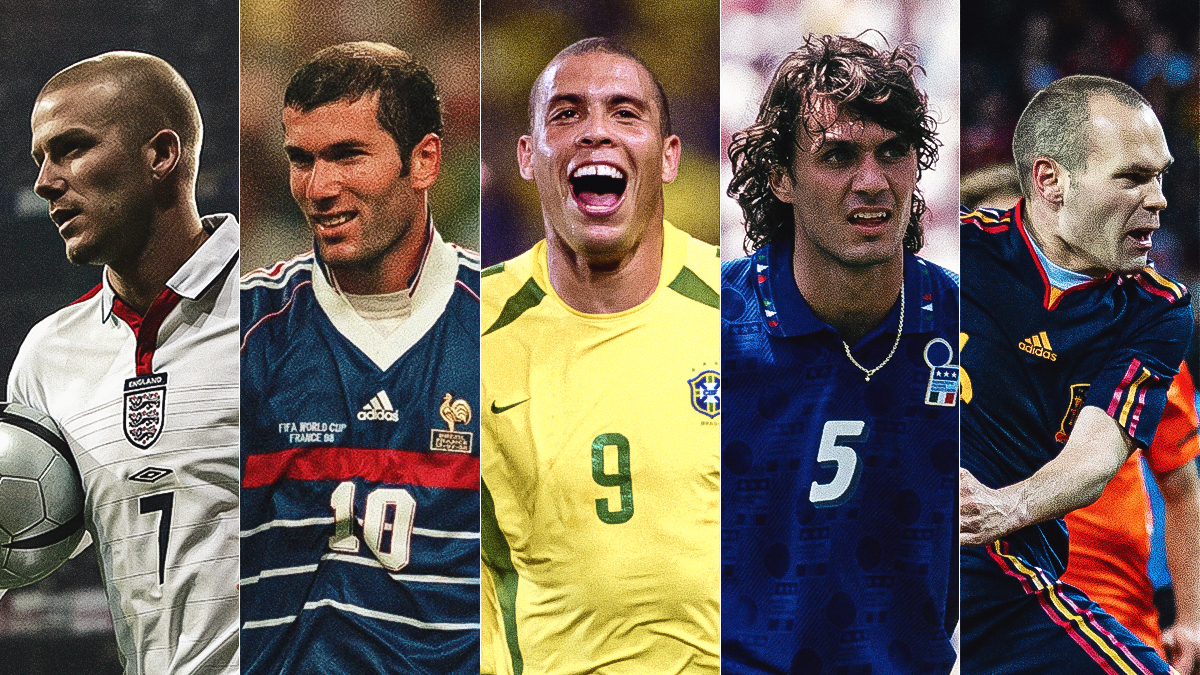
The best team ever… is it Barcelona under Pep? The Netherlands in the 70s?
No – it's this, the best XI players in modern football history. To celebrate FourFourTwo's 30th birthday, we wanted to honour the greats of the past three decades. Let us know what you think @FourFourTwo.
Scroll through the pages to see who made it into each position, with a tribute to each star.
How FourFourTwo's experts picked the 'best team ever' of the last 30 years
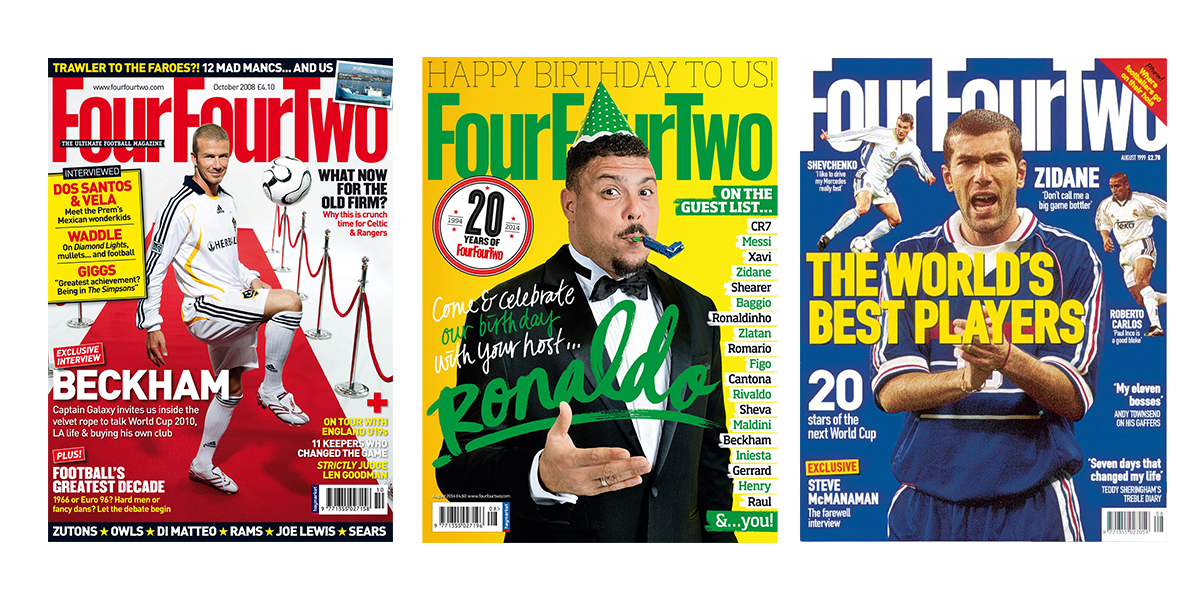
We asked every one of FourFourTwo's football experts to give us the best-ever XI of the last 30 years. Just as in our own Perfect XI feature in the magazine, we asked for 11 players and three substitutes. Arranged in a 4-4-2, of course.
The criteria was simple. They simply had to have defined the last three decades of football, being at the forefront of the sport as the best in their position for one reason or another. While 'greatest-ever' debates often include the likes of Pele, Diego Maradona and Lev Yashin, we wanted to produce the greatest team in the modern game – considering stars' careers from 1994 onwards.
Each player picked by an expert in their starting line-up got a point; each substitute half a point. We then tallied up each player and narrowed our XI and bench down to 17 players. Our experts discussed the pros and cons of each player and how each one would provide balance to the players already selected.
The FourFourTwo team were then asked to vote for the remaining spots in the XI that weren't already locked in. And there may be some controversy about who was left out…
GK: Manuel Neuer
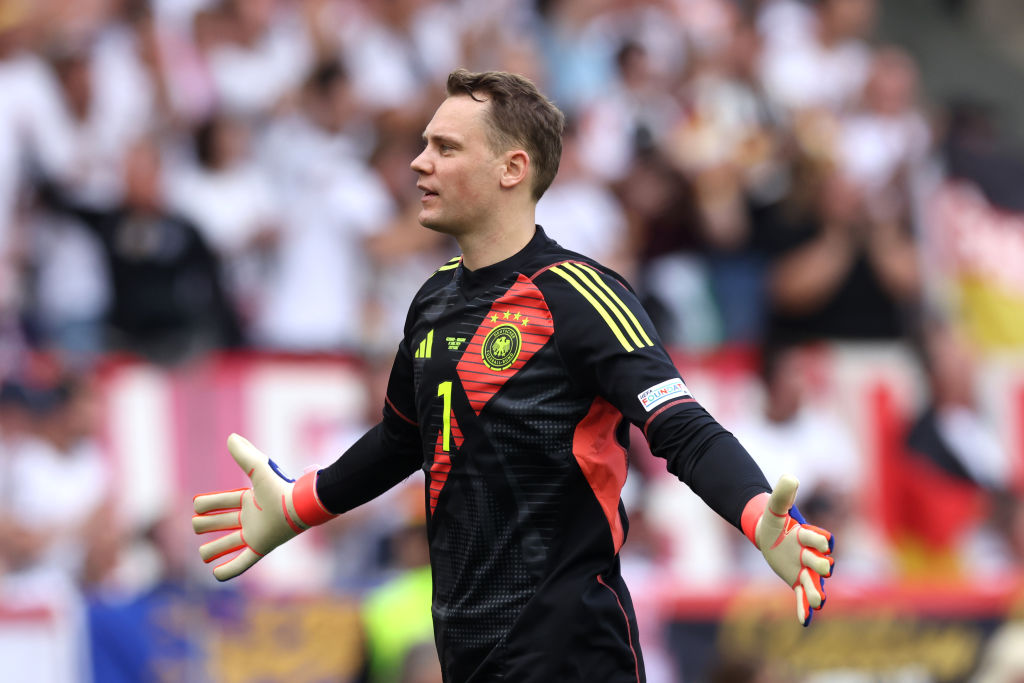
Aged six when the back-pass rule came into effect, Manuel Neuer comes from the very first generation of goalkeepers forced to use their feet. The German redefined what it is to be a goalkeeper in the modern game.
Running matches from his own half, throughout his career he has unlocked teammates from traditional tactical shackles and handed his managers a player advantage, such is his ability with the ball at his feet. No goalkeeper has done more to redefine the position as much as Neuer in the last 30 years.
In turn, he has helped reshape the look and feel of football in general, with technical play out from the back now a true staple of the game today at the highest level. But to label Neuer a midfielder in gloves is a massive disservice.
Pure shot-stopping brilliance from Manuel Neuer! 🚫🇩🇪#FIFAWorldCupMarch 27, 2024
His ability to make saves in high-pressure situations make him a true great. From distance, or close range the man is a human wall.
Physicality, aura, and calmness: the sweeper-keeper has swept the lot when it comes to trophies: a World Cup, two Champions Leagues, 11 Bundesligas, seven Germany Super Cups, six German cups, and at 38 he shows no sign of stopping.
Matthew Ketchell
RB: Philipp Lahm
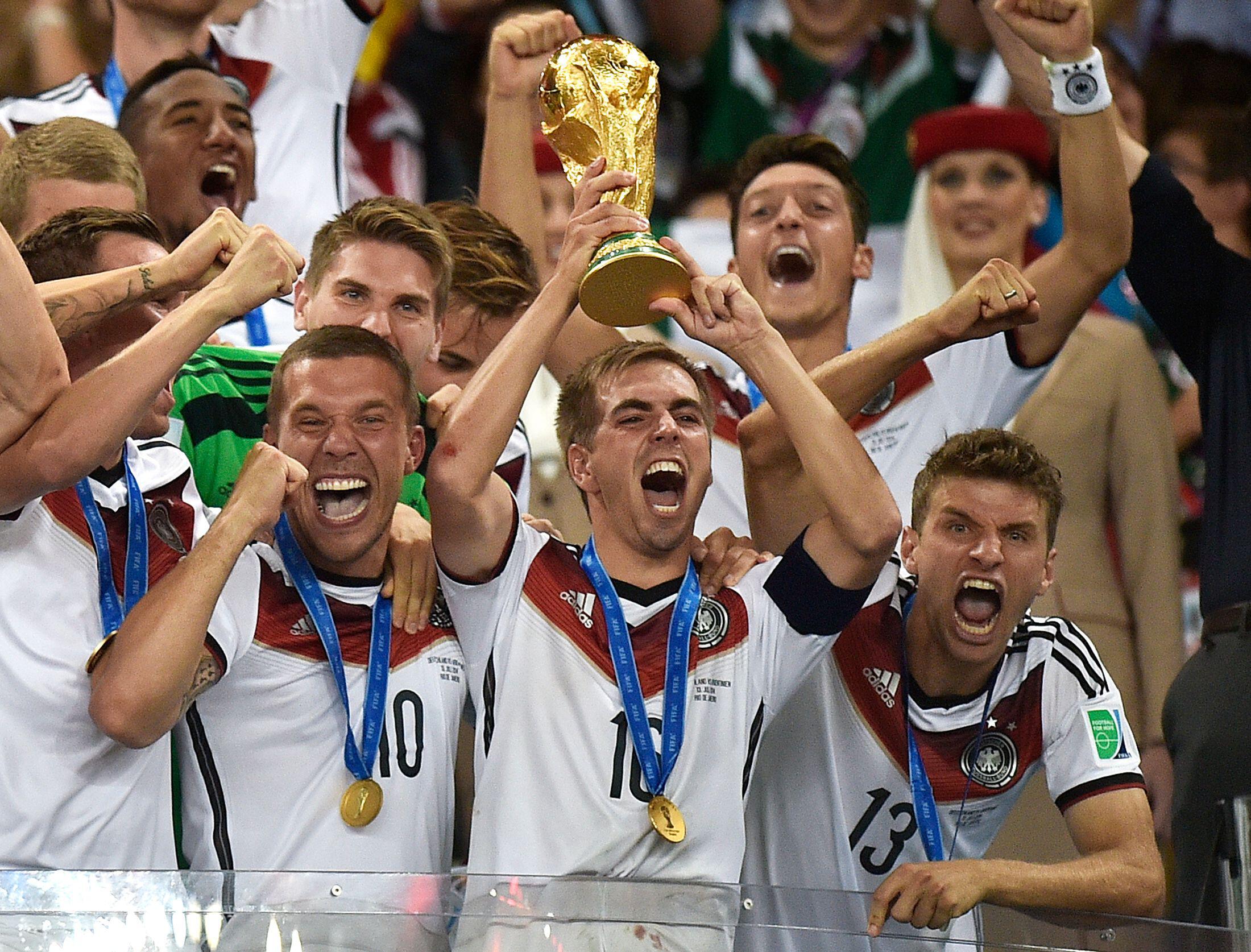
Intelligence personified, Philipp Lahm never had blistering pace, wasn’t the most physical and stood at just 5ft 7in tall. It’s a good job, then, that he had a razor-sharp brain coupled with an exceptional technical ability that saw him effortlessly move from left-back to right-back - and even to central midfield - over the course of his glittering career.
In his 12 years as an established first-team Bayern Munich player, Lahm lifted eight Bundesliga titles, six DFB-Pokal trophies and added in a Champions League crown as part of a treble for good measure. The captain for those 2013 triumphs, Lahm raised those three prizes above his head just a year before he was standing with the World Cup trophy at the Maracana Stadium with the armband adorned on his left bicep.
Ever-dependable, Lahm rarely missed a game, too. Between 2006/07 and 2016/17, the German made more than 40 appearances for Bayern Munich in all but two campaigns, and he managed 113 international games, achieved over just a 10-year period.
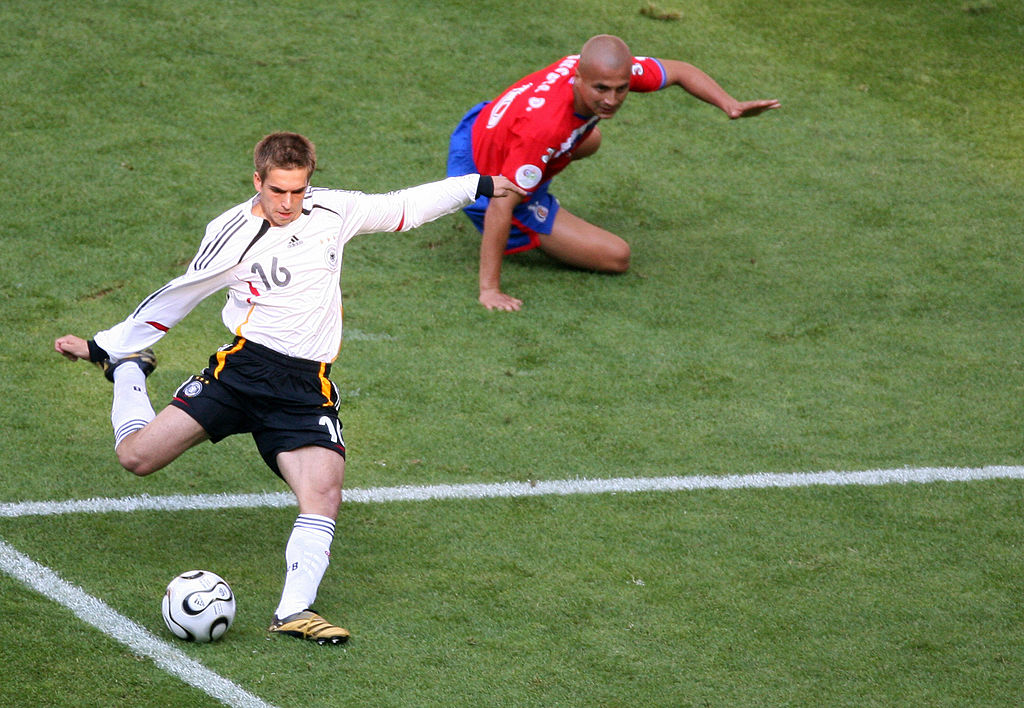
It’s Lahm’s reinvention of the full-back position where he’s had the most influence, however. The original ‘inverted full-back’, Pep Guardiola often moved the diminutive defender into central midfield to create an overload when in possession - before eventually just starting him in the middle anyway, such was his creative and tactical capabilities.
Upon reflection, retiring at 34 seems a tad too early for a player that never needed to rely on their physicality. But after winning everything there is to win, who are we to say otherwise?
Ryan Dabbs
CB: Sergio Ramos
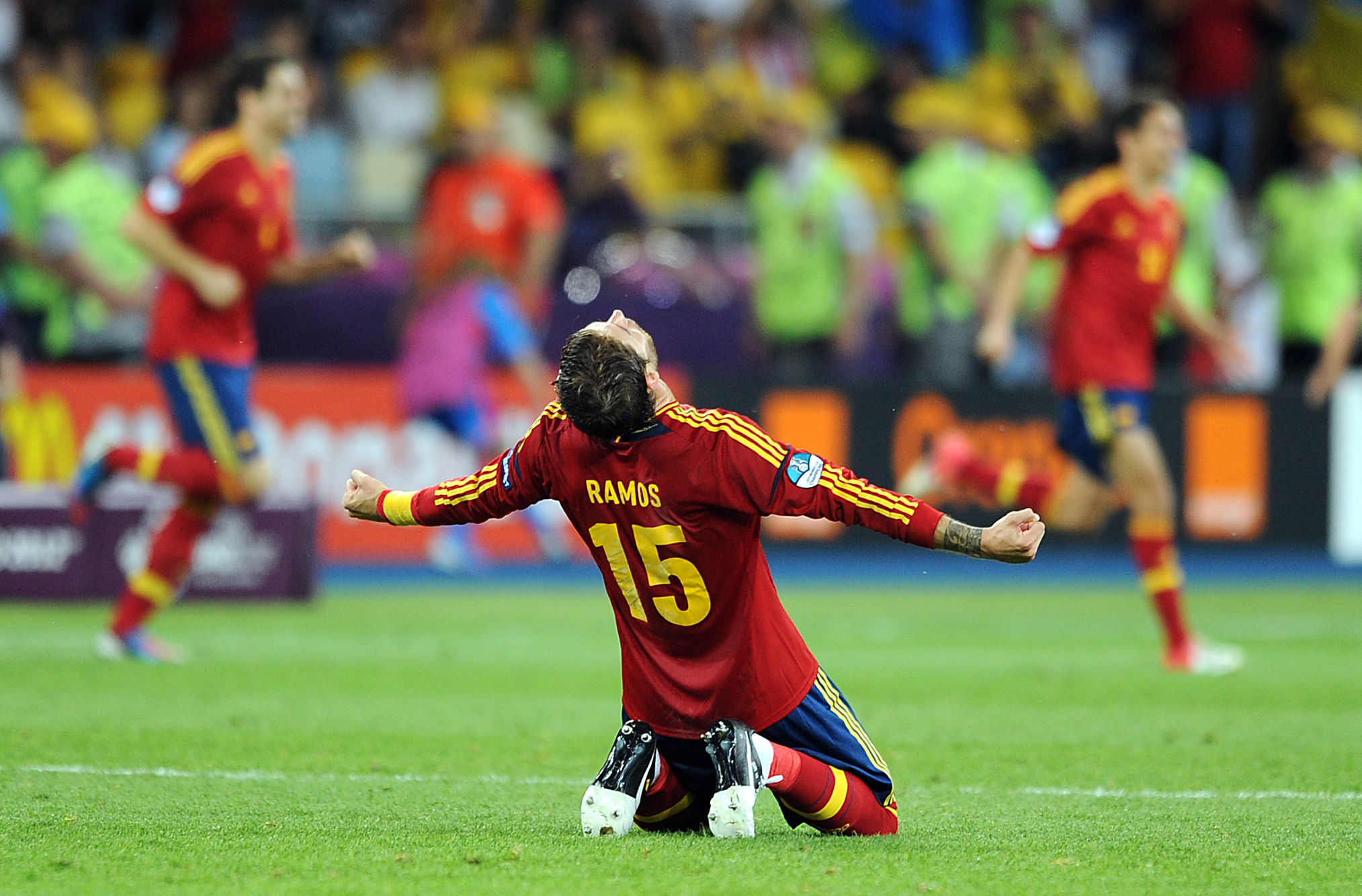
A World Cup, two Euros titles, four Champions Leagues, five La Liga titles, two Ligue 1 titles, four Club World Cups, three UEFA Super Cups, along with a host of Spanish and French domestic cup competitions.
Many can’t reel off all Sergio Ramos’s honours without needing to draw breath, far fewer can boast anything close to the achievements he has to his name. That he kept his place through multiple iterations of successful Real Madrid sides is little surprise given the all-round nature of his game, a rare trait for a centre-back.
The past 30 years in football have seen defenders evolve from the toughest brute forces on the pitch to being valued more for their technical ability and tactical awareness in the modern day. If you’re looking for one figure to bridge the gap between those two distinct eras in defending, look no further than Ramos.
Sergio Ramos 🤯#UCL pic.twitter.com/ZOi7Jntch3February 19, 2024
A master of the ‘dark arts’, the Spaniard’s disciplinary record is not far off the sort of numbers you’d expect if you dropped Vinnie Jones into the age of VAR; Ramos smashed just about every record there is on the number of cards collected by a single player. But he was so much more than a thuggish force. He was just as adept on the ball as challenging for it, which also allowed him to play at full-back and in midfield at various points. He could whip a mean delivery into the box, netted three free-kicks and was partial to a Panenka; a rare master of all trades.
“Factoring everything together to evaluate a defender, then Sergio Ramos is the most complete,” Los Blancos manager Carlo Ancelotti said. “He’s got a bit of everything: technical ability, strength, personality and leadership.”
Isaac Stacey Stronge
CB: Carles Puyol
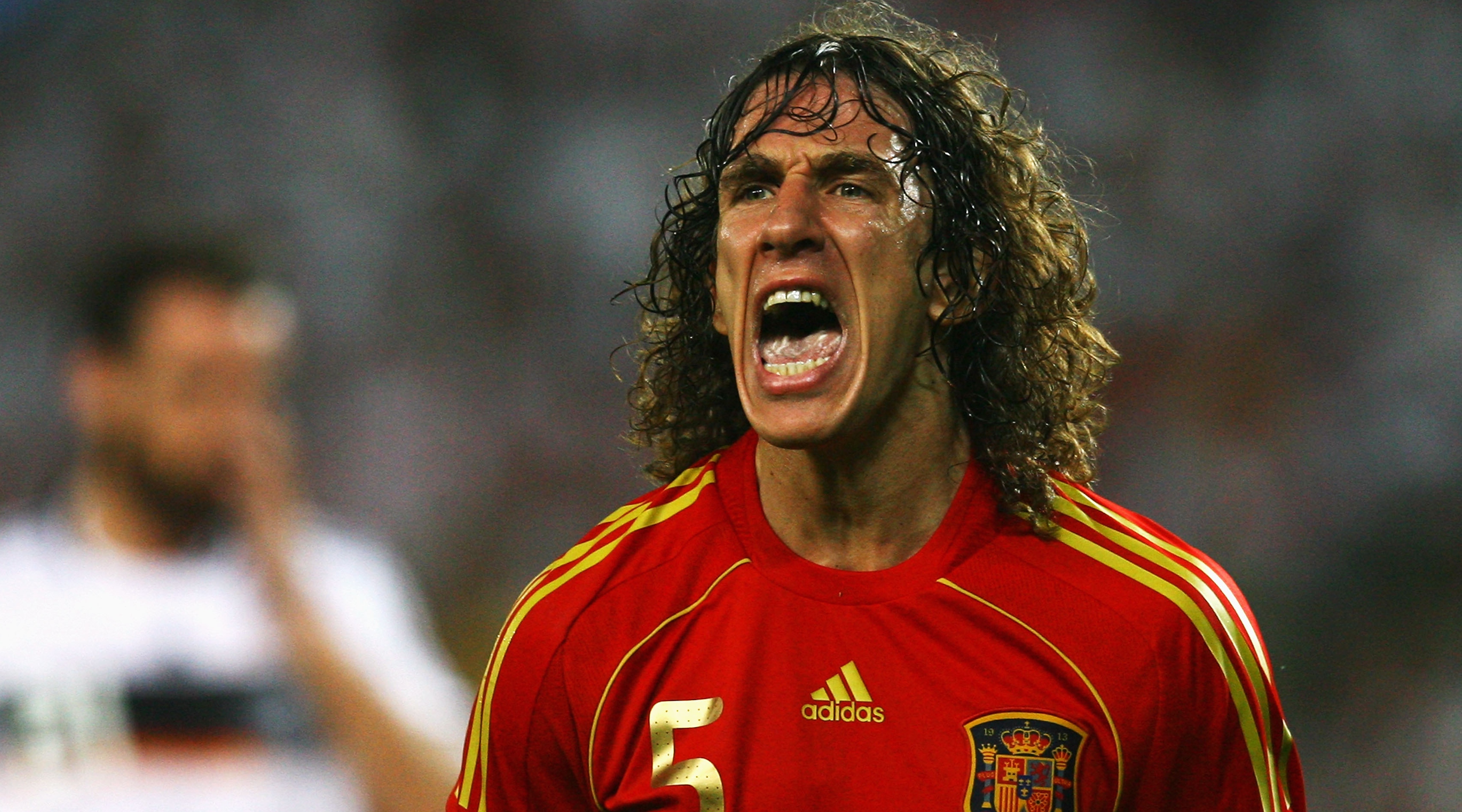
Carles Puyol was one of the last of a dying breed of centre-backs. Rugged, powerful, dominant and no-nonsense, he did the job of an out-and-out defender better than pretty much anyone of his era.
But he was also extremely gifted in possession. He was a key man early on in Pep Guardiola’s tenure at Barcelona and in the Spain teams that won both Euro 2008 and the 2010 World Cup.
Puyol finished his career in 2014 with a hugely impressive list of honours: six La Liga titles, three Champions Leagues, two Copa del Reys, a World Cup and a Euros. He was in the UEFA Team of the Year six times from 2002 to 2010.
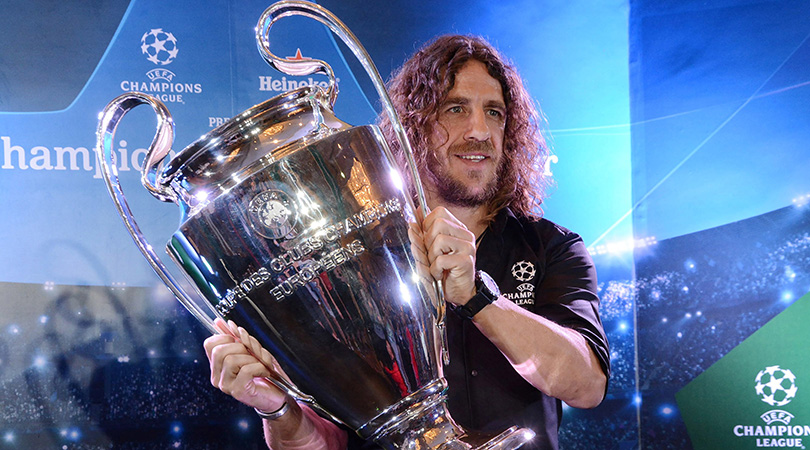
While both Guardiola’s Barcelona and Vicente del Bosque’s Spain were recognised for their aesthetic brilliance, for their slick passing and fluid movement, Puyol added a necessary steel. At the 2010 World Cup, Spain were almost impossible to score against, not only because they kept so much of the ball, but because of Puyol’s ability to both lead and organise his defence.
The Guardian once described Puyol as, “Barcelona's very own Captain Caveman, playing football with his heart on his sleeve and his hair in his eyes, throwing himself about the pitch and launching wholeheartedly into kamikaze tackles like a hyperactive, lunatic kid.”
While the idea of Puyol as a hard-tackling beast of a defender was, in many ways, accurate, he was a far more well-rounded footballer than many acknowledged. He would have had no issues at all slotting into the world’s top defences today.
Callum Rice-Coates
LB: Paolo Maldini
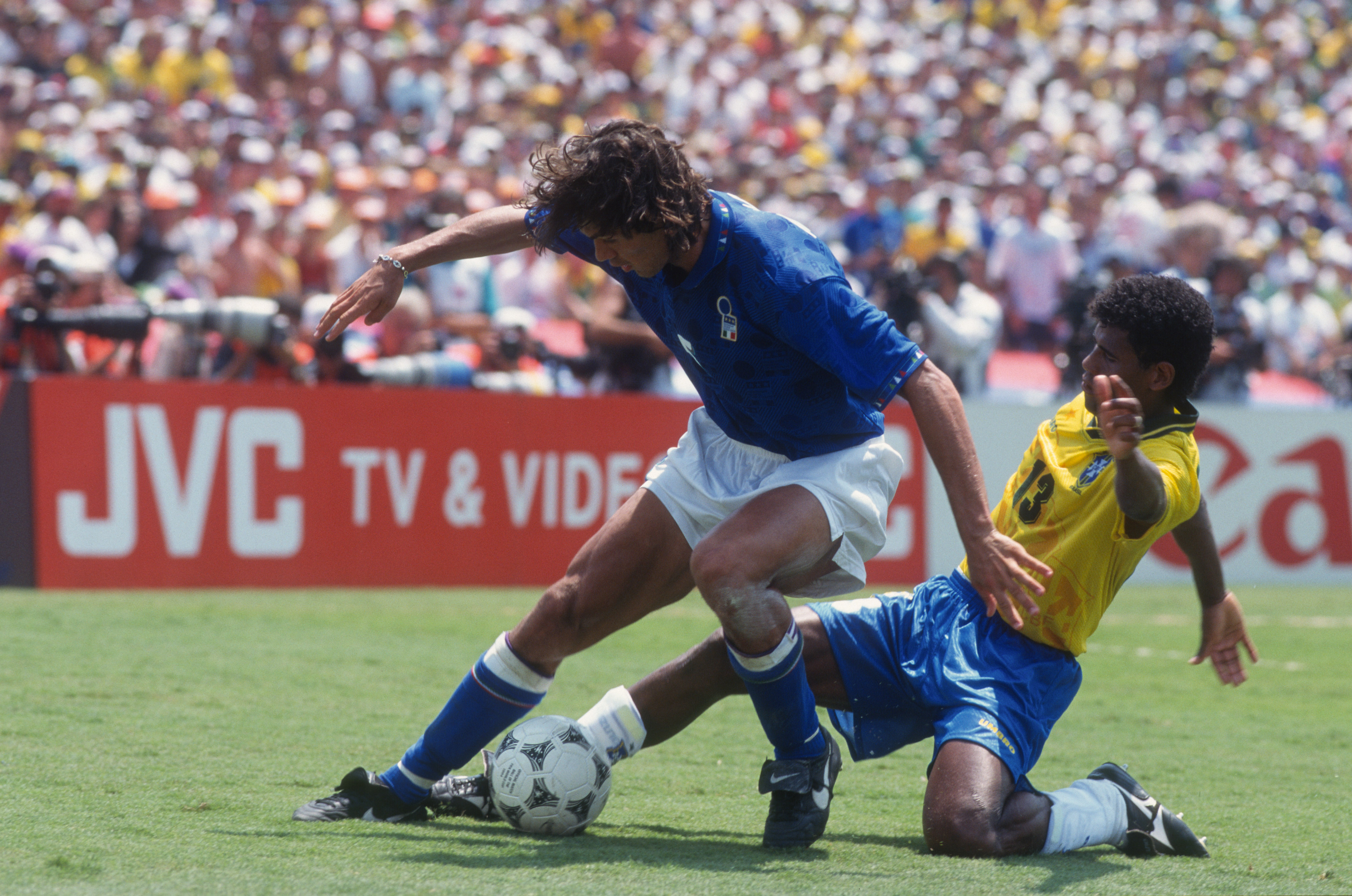
It’s perhaps a very English way of thinking to see defending as the art of getting stuck in, delivering crunching tackles and stopping your opponent at all costs.
But for Italy and Milan icon Paolo Maldini, that would been seen as failure.
“If I have to make a tackle then I have already made a mistake,” he once said, which neatly sums up the defender’s playing style and personal philosophy. Maldini was always one move ahead of his opponent, with an almost supernatural ability to be in position to sniff out danger before it developed and then turn defence into attack with his superb passing range.
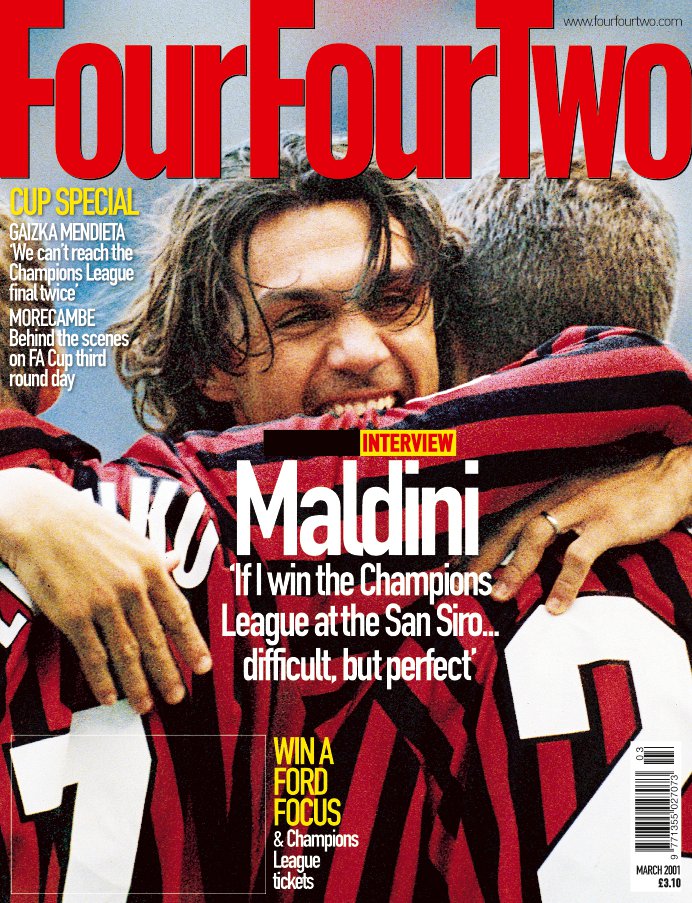
The list of strikers that failed to get the better of Maldini during his 25-year Serie A and European reign is a veritable who’s who of that era’s greatest players (Maradona, Zidane, both Ronaldos, Battistuta, Vieri, Baggio, Del Piero, and many, many more). We dare say if you ask any of them, they will tell you that the Milan skipper was the toughest defender they ever took on.
A true one-club man, Maldini turned out 902 times for Milan won 126 caps for Italy, usually as captain and won just about everything there was to win during his domestic career, including seven Serie A titles, five European Cups, while he captained his county to the finals of both the World Cup and the European Championship.
We’ll leave the final word to a player who spent two decades trying - and usually failing - to get the better of the classy defender, Alessandro Del Piero: “There are great players and there are world-class players.” the former Juventus striker. “Then there are those who manage to go beyond that term. Paolo is the perfect example.”
Joe Mewis
RM: David Beckham
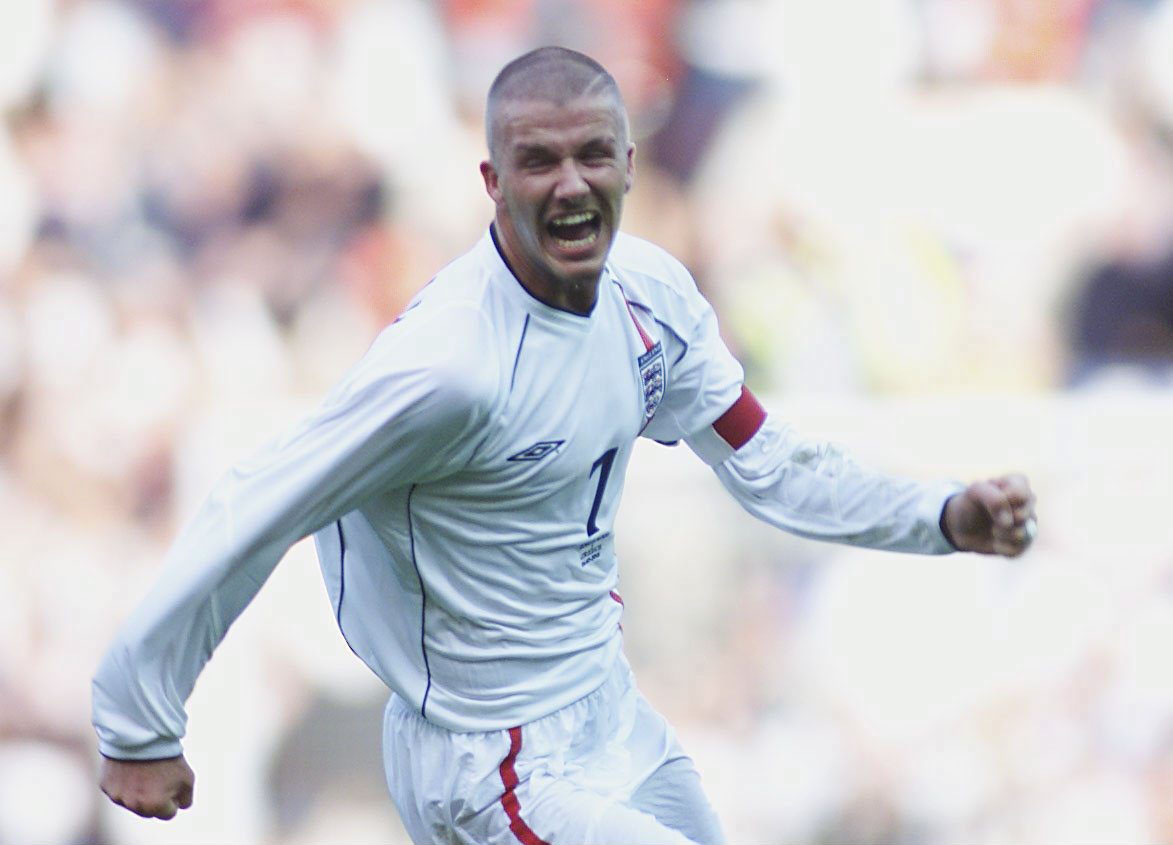
A decade on from hanging up his boots David Beckham remains one of the biggest names in football. He may have swapped the pitch for the board room at Inter Miami but his draw and reputation in the game remains as high as it has ever been.
But away from the headlines on the front and back pages, and away from sarongs and different hairstyles, it should not be forgotten that David Beckham was a very, very good footballer. One of the very best.
He is the first English footballer to win championships in four countries – England, Spain, USA and France – and won 115 England caps over a 13-year international career. Renowned for his accuracy from free kicks, Beckham scored 18 in the Premier League – which at the time of writing is still a record.
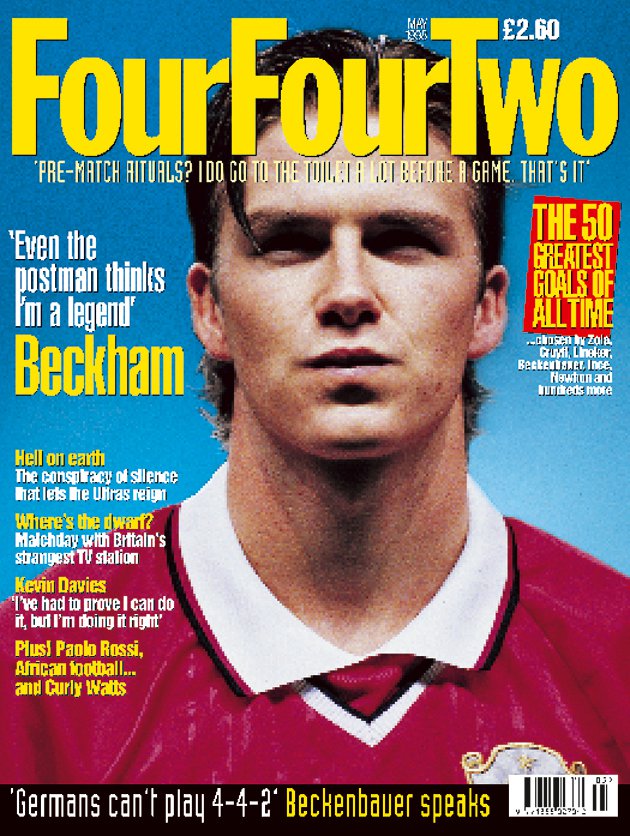
Beckham played at the very top for the whole of his career, in England, Spain, France, Italy and also played a pivotal role in helping MLS grow and become what it is today. But for all his free kicks, long and accurate passes and crossing ability, Beckham's sheer work and determination is sometimes overlooked.
The World Cup qualifier against Greece at Old Trafford is a perfect example of this. Yes he scored the decisive free kick that booked England’s place in Japan and South Korea, but that had come on the back of 90+ minutes of him covering every blade of grass for the cause.
Make no mistake, David Beckham was an exceptional footballer on the pitch and a global icon off it.
James Andrew
CM: Zinedine Zidane
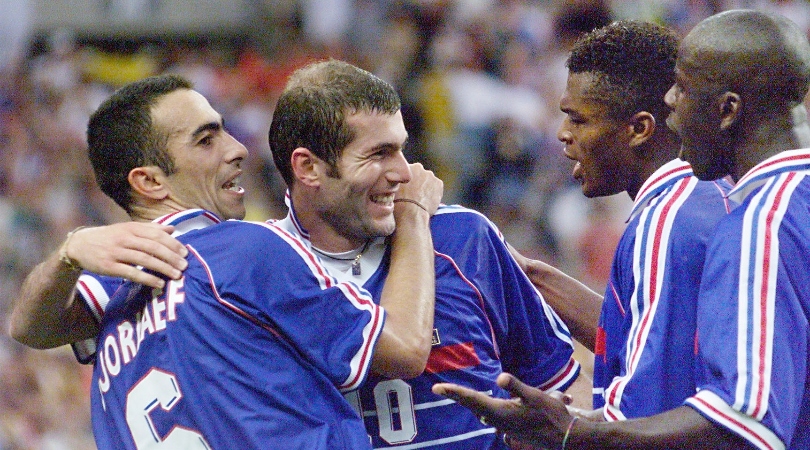
Mon Dieu, has any player produced more truly iconic moments over the past 30 years than Zinedine Zidane?
Speak the Frenchman’s name and a reel of era-defining shorts begin to clatter through the projector. The headers that downed Brazil to seal Les Bleu’s home-soil domination in 1998. The left-footed volley that demolished Bayer Leverkusen in 2002. The golden-slippered toying of Brazil in 2006… The headbutt that followed just two games later.
While few proclaim Zidane the greatest player of all time, there is a case to be made that he’s the best in purely technical terms. Elegance, composure, control, vision, balance, touch. In his finest performances at Bordeaux, Juventus and Real Madrid, no player could match him. In a France shirt, nobody even came close.
Zinédine Zidane 🆚 Leverkusen, 2002. #UCLfinal pic.twitter.com/KJ7bSypLwKMay 28, 2024
Some may point to Zidane’s medal haul as evidence that he wasn’t as good as is often suggested. Three league titles and one Champions League are a paltry haul for a player of his quality, even with his World Cup, European Championship and the 1998 Ballon d’Or thrown in. But medals, goals, mere numbers, don’t do Zidane justice. How do you measure the gasp of a crowd witnessing one of his trademark Roulette turns? How do you calculate the audacity of flicking the ball over R9’s head in a World Cup quarter-final? You’d have better luck reducing a stroke of Claude Monet’s paintbrush to fractions.
Perhaps Los Blancos legend Alfredo Di Stefano said it best when he suggested that Zidane played football “as if he had silk gloves on each foot”.
One silk glove raised high into the cold night air in Glasgow’s Hampden Park as a ball falls from the heavens. There isn’t another player over the past 30 years that could have hit it like that…
Ed McCambridge
CM: Andres Iniesta
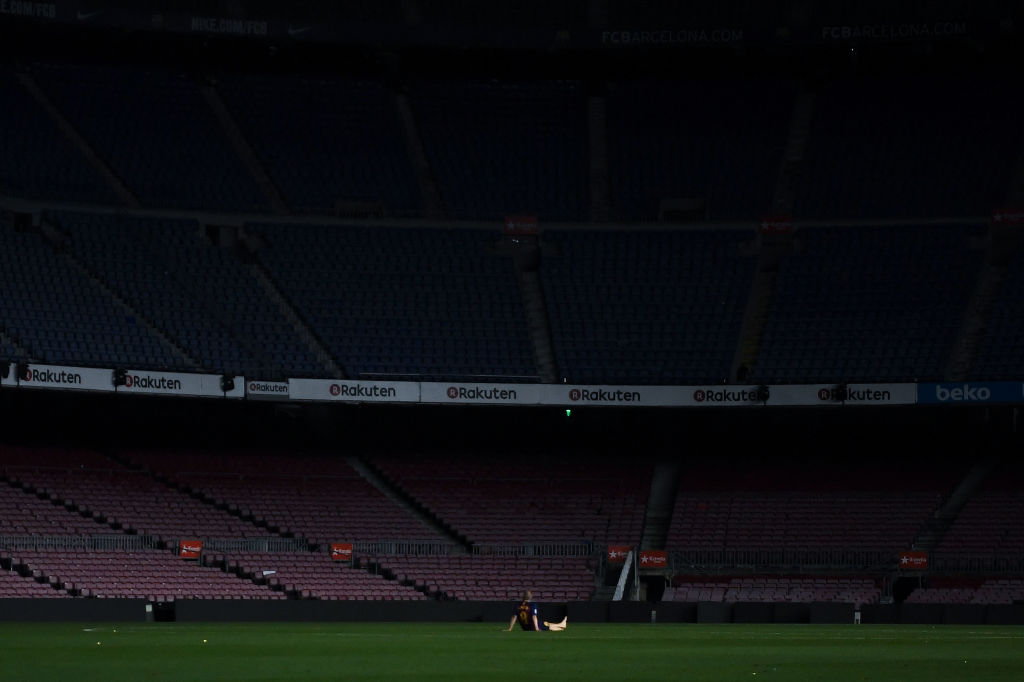
The most iconic image of Andres Iniesta is one of him sitting in the centre circle surrounded by every midfielder better than him in the 21st Century. His Barcelona career was outscored by John Terry at Chelsea – but the Spaniard remains perhaps the most influential footballer of his generation.
When FourFourTwo was founded, midfielders were bruisers and brutes. 30 years later, almost to the day, Iniesta is retiring having reinvented the very image of what a midfielder is, can be and should be.
He’s far more than Xavi’s introverted half: he could do both roles on his lonesome and so much more. He was the complete footballer.
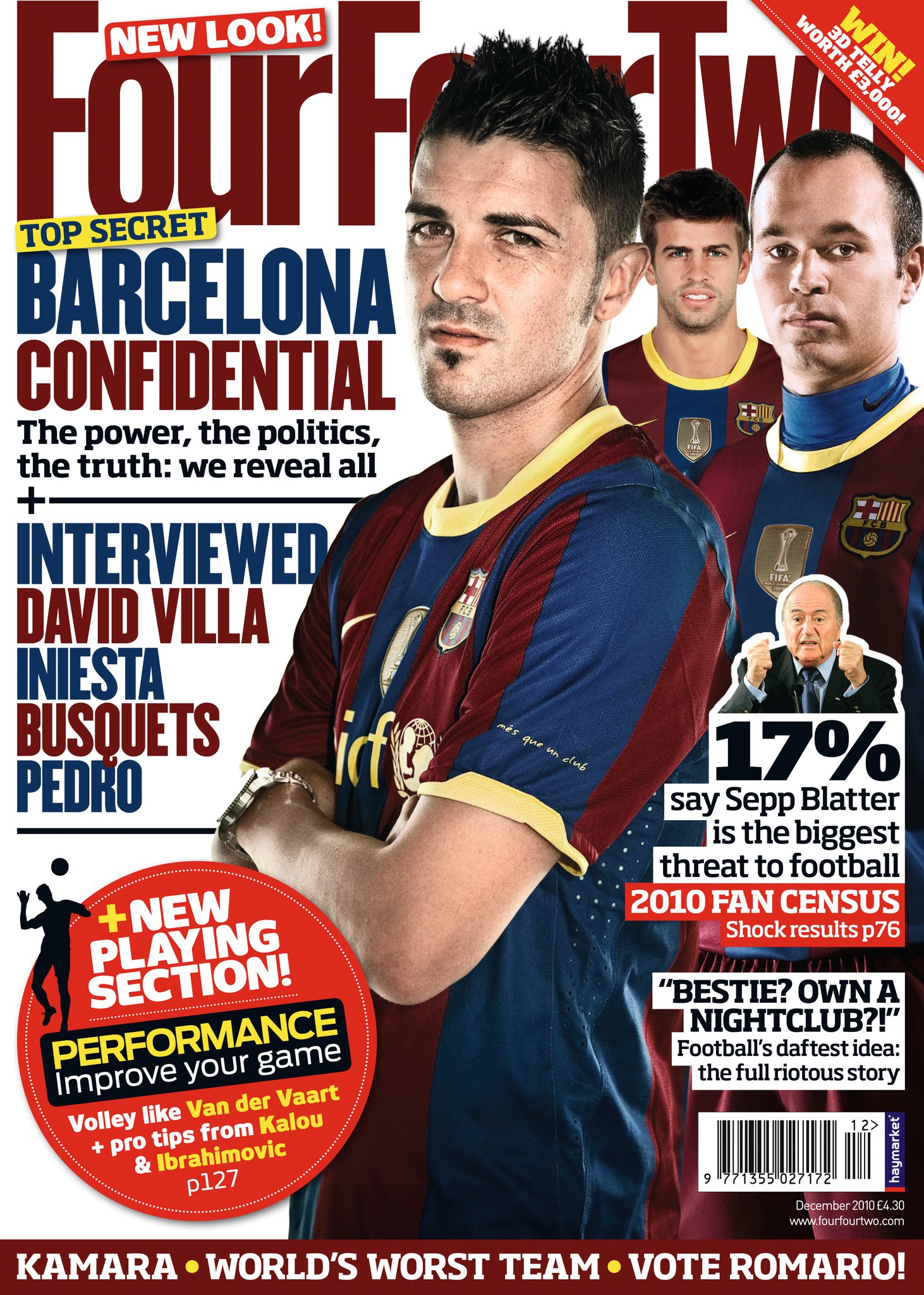
Iniesta introduced himself to the world in the 2006 Champions League final, essentially cosplaying as Andrea Pirlo to puppeteer an ever-frantic Barça with the coolness they needed. He would play in another three, and was arguably the best player in each. He was the Spaniard that broke free to personally etch his nation’s name on the World Cup trophy for the first time, dedicating the goal to late friend Dani Jarque. He resurfaced from his own depression in the same moment; he would become the catalyst behind Clasicos, the clutch in Pep Guardiola’s unprecedented first season in senior football.
His DNA runs through modern football, yet he barely left a footprint – and that’s just how he liked it. The quiet genius who changed football, like a waiter removing a table-cloth without so much as chinking a glass. And he received a fraction of the credit he should have done. That Iniesta is known as ‘the Illusionist’ in Spanish football is telling – this is a man who could never be measured in black and white but the flickers, flecks and feints; moments and movements of an imagination whirring faster than anyone else's.
That's what Iniesta gave us; that's our defining memory of him. Imagination.
Mark White
LM: Ronaldinho
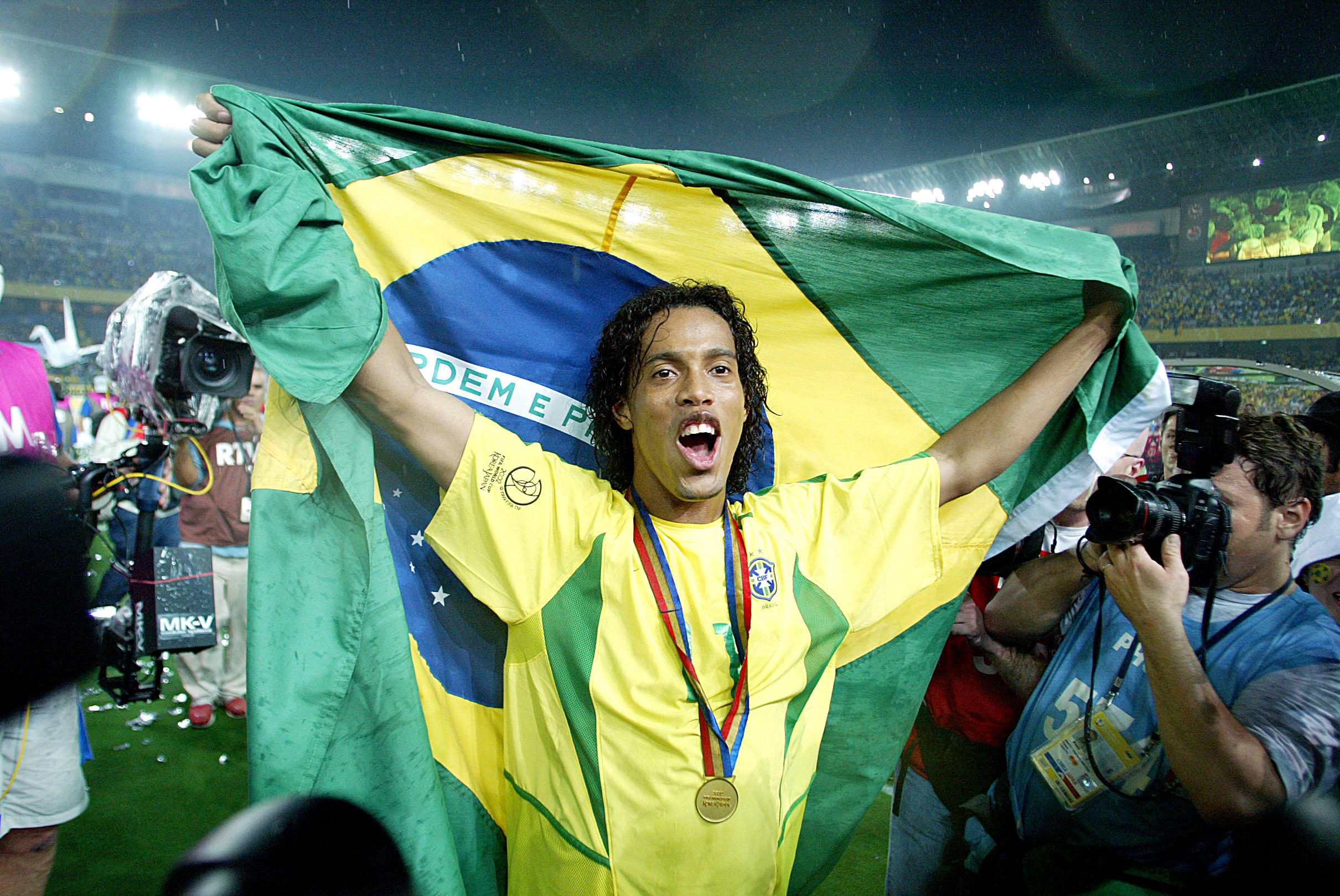
The one thing people seem to forget about the Beautiful Game, is that life itself is also beautiful. For some, that means the idyllic stillness of the soul that they find looking out at the world’s great natural wonders. For others, it’s the sight of their children going from learning to walk to walking down the aisle in the relative blink of an eye.
For Ronaldinho, it’s drinking champagne in a hot tub while nuzzling up to 5 Brazilian women with arse implants. It’s rolling into training direct from a Milanese nightclub before the biggest game of the season. It’s moving into a marble-floored mansion with your two supermodel fiances, only for the throuple to break down because you casually mention you’re shagging a third woman.
Now, imagine doing all that and still making the defenders of La Liga, Serie A, and Ligue 1 look like hired clowns for the better part of a decade. The very personification of work hard, play harder.
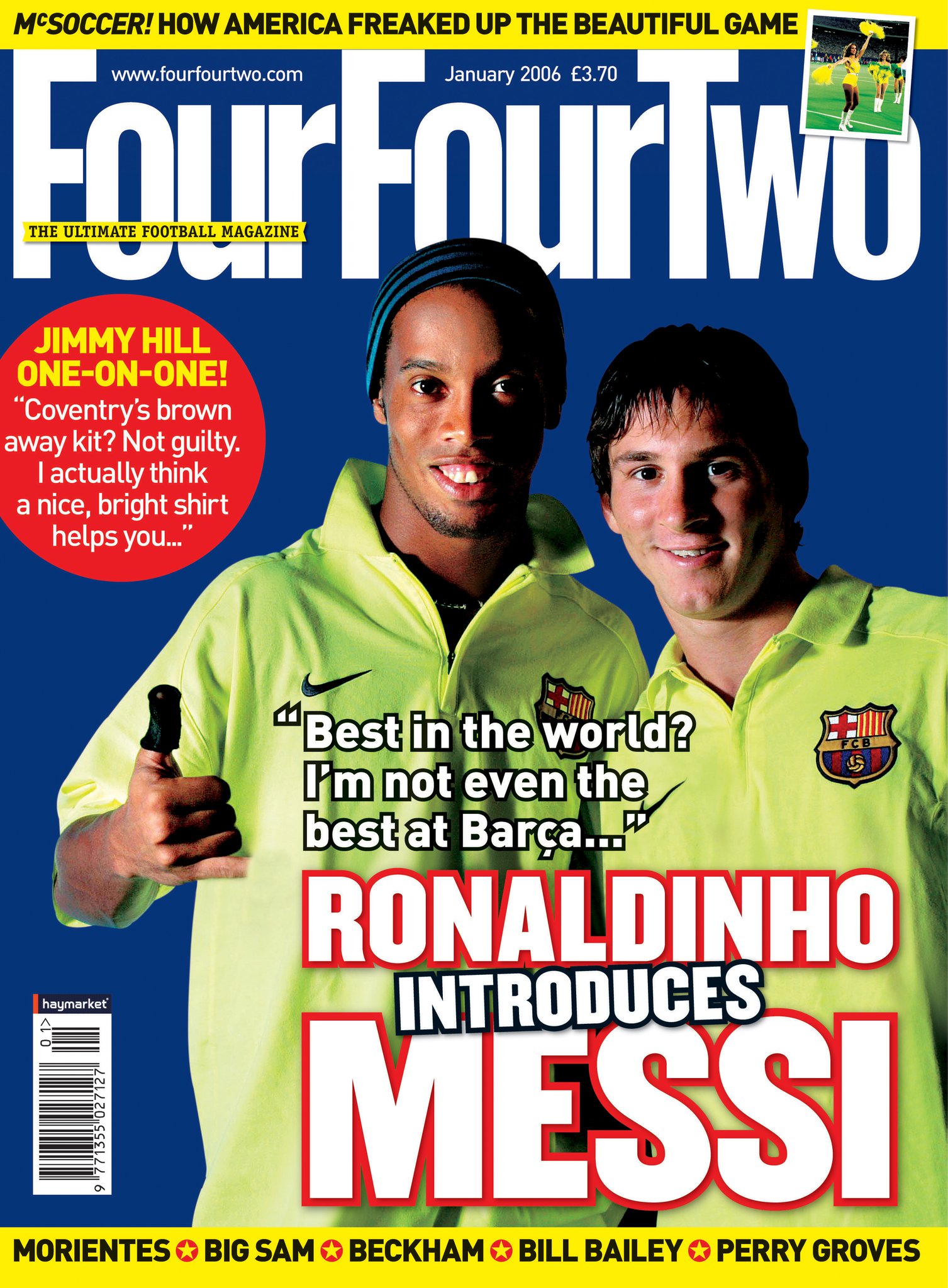
The no-look passes, the flip-flaps, the endless mazy runs and venomous 30-yard bangers; there has simply been no player before or hence that has shown you football, or life, the way Ronaldo de Assis Moreira did. And while it’s easy to look back at his time at Barcelona and find the enduring moment that best surmises him - the stunning debut goal, the standing ovation at the Bernabeu, whatever you call that no-backlift finish against Chelsea - there’s perhaps a game you haven’t seen that does it best.
Imprisoned in Paraguay for attempting to enter the country on a fake passport (Paraguay, incidentally, not a country you even need a passport to enter from Brazil), Ronaldinho was asked to take part in the upcoming match between the inmates. His team won 11-2, with the man himself not just scoring 5, but assisting the other 6.
It’s unknown what football team the 18th-century English poet John Keats supported, but when he said “a thing of beauty is a joy forever”, this is surely what he meant.
Adam Clery
CF: Lionel Messi
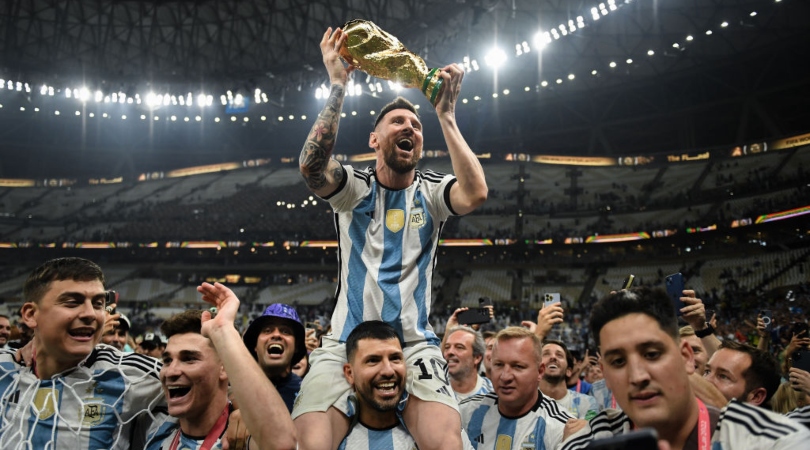
‘The next [insert player name here]’ is a poisoned epithet for the overwhelming majority of players. 99 times out of 100, the standard set by their esteemed forebear is impossible to live up to – and never more so than when the sentence is completed by ‘Diego Maradona’.
Inevitably, that’s precisely what the talented young Argentine making his way through La Masia got throughout his time there. There can be no greater accolade for Lionel Messi than to say he not only lived up to that billing, but surpassed it.
In an age in which image often seems more important than the football itself, the unassuming Messi has become the biggest name in world sport purely by virtue of what he does on the pitch.
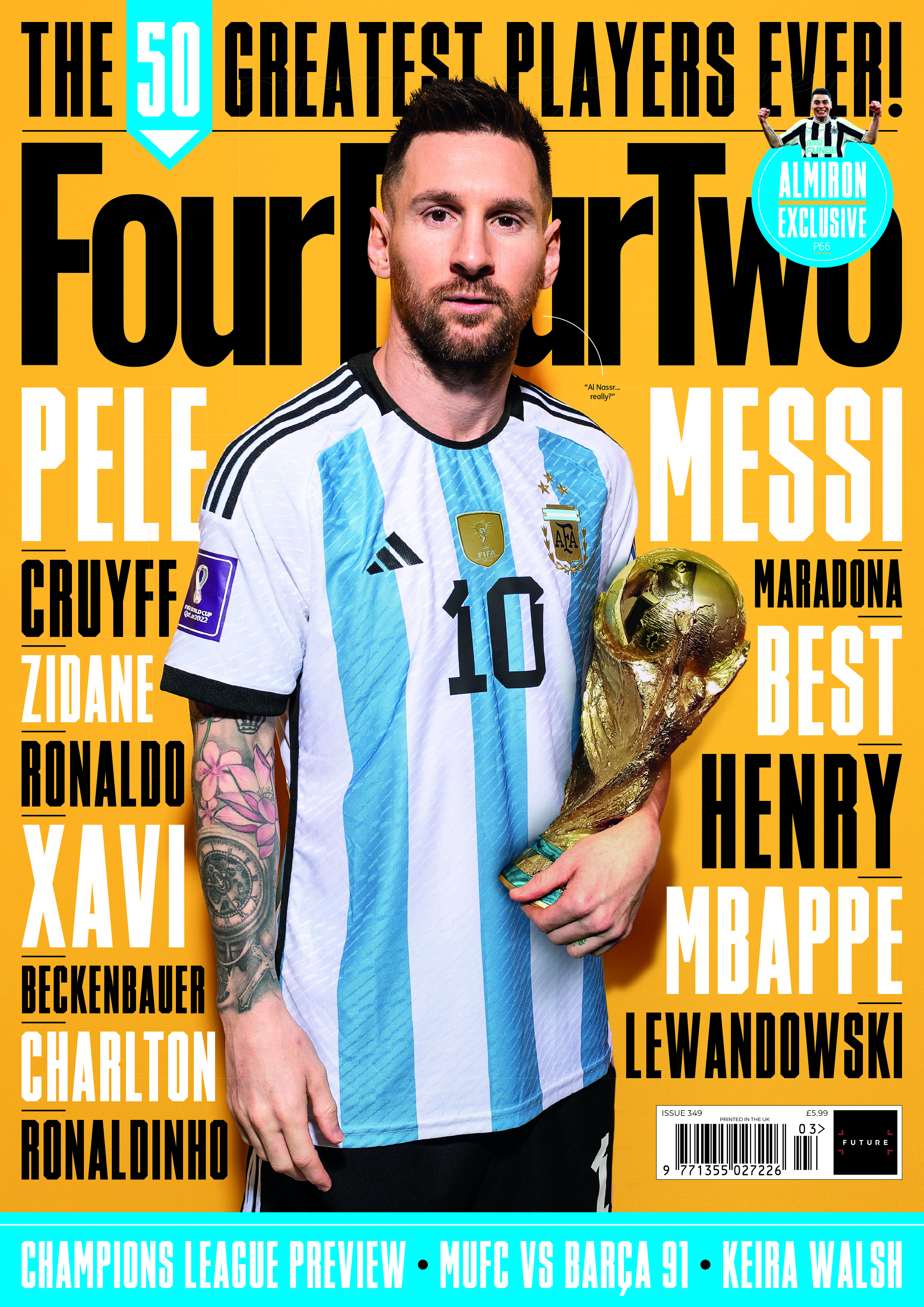
If Maradona had been a tortured genius, Messi is quite simply genius. The list of world records attributed to him cannot even fit on a single screen, but includes the most ever Ballons d’Or (eight), including the most in a row (four) and the longest gap between his first and last such gongs (14 years, from 2009 to 2023).
At his 2012 peak, Messi registered 91 competitive goals for Barcelona and Argentina in a single calendar year, the most ever reliably recorded at an elite level. He is the fastest player ever to reach 300 goals and 400 goals in Europe’s top five leagues.
Messi is the only man to be named the best player at two separate World Cups, the most recent of which saw him end Argentina’s 36-year wait to lift the trophy and become the first player to score in every round of a five-round World Cup. Those heroics contributed to his 35 goals in cup finals, with 15 assists to boot. To be called ‘the next Messi’ is now the ultimate albatross for young players to wear, because there will only ever be one.
Steven Chicken
CF: Ronaldo
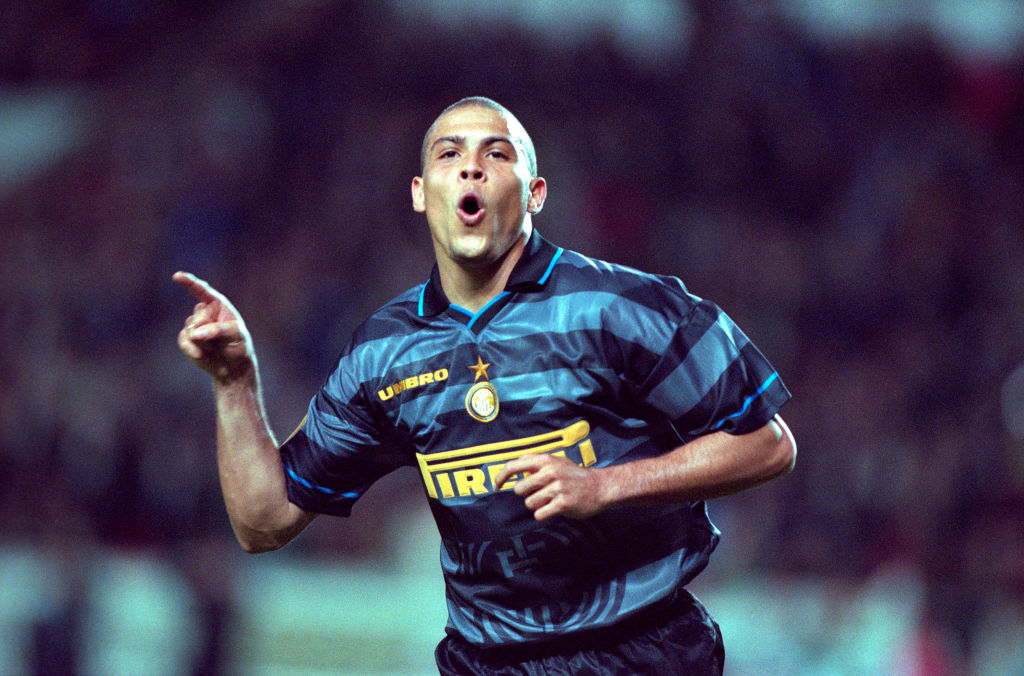
If you’re nicknamed O Fenomeno chances are you’re a bit special. But Ronaldo wasn’t merely special, he was a force of nature.
When first arriving in Europe with PSV in 1994 - the year FFT was founded - the Brazilian was unlike any forward seen before. Ronaldo scored every kind of goal imaginable, whether it be beating five defenders on a mazy dribble, a long-range piledriver, or a poachers tap-in. Fans who only saw him in his later years, wouldn’t fully appreciate the blistering speed he possessed during those heady days.
His manager at Barcelona, Bobby Robson, later said: “He was the fastest thing I’ve ever seen running with the ball.” During his one and only season in Catalonia (1996-97) Ronaldo scored a frankly ridiculous 47 goals in 49 games in all competitions. Even now it is hard to imagine a better individual season.
G⚽️AL MORNING!!! Today is a good day to look back at one of the best goals in Barça's history ⚽️🔝 pic.twitter.com/rAwBcSwoDTDecember 12, 2017
He was unstoppable, only 20 years old – and was clearly totally unphased by the pressure that normally comes with a world record transfer fee. A second big money move to Inter Milan saw the Brazilian cement his position as the best player in the world. A horrendous knee injury suffered in April 2000 would later reduce his powerful, explosive nature. Who knows the levels he may have reached had he avoided such a crippling blow.
For many, it would have been a career-ender, yet Ronaldo managed to return to his rightful place as one of the best players on the planet. His intelligent movement and ruthless finishing was the catalyst for Brazil’s fifth World Cup in 2002 – scoring eight goals and winning the golden boot, for a team he later said was the best he had played in.
In the years after he managed to be the star attraction in a Real Madrid side that included Beckham, Figo, Zidane and Raul. Ronaldo didn’t have the same cultural impact of Pele, he didn’t lift otherwise average teams in the same way Maradona did. He didn’t have the staggering career longevity of Lionel Messi or Cristiano. But at his very best in the nineties, Ronaldo was as good as - if not better than - all of them.
Jack Lacey-Hatton
FourFourTwo's Best Team Ever
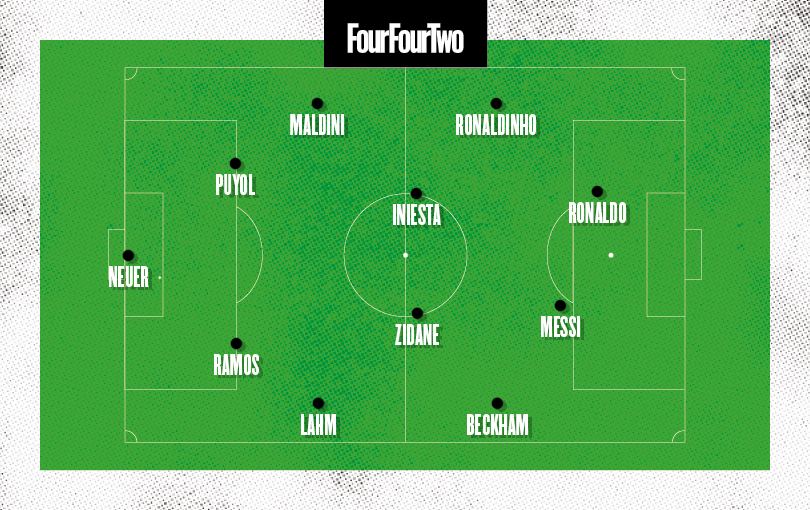
Substitutes: Andrea Pirlo, Thierry Henry and Cristiano Ronaldo
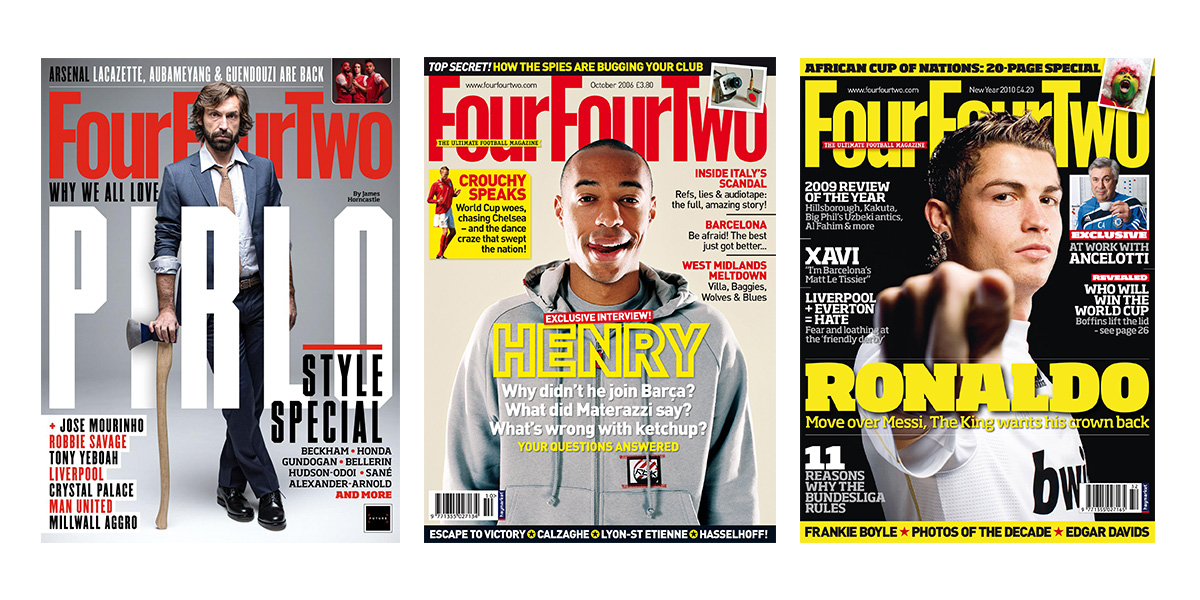
There had to be omissions. But we didn't think they would be this controversial.
With the formation being a 4-4-2, there was only room for two forwards. Thierry Henry and Cristiano Ronaldo were both popular picks but Ronaldo and Messi were simply a little more popular. Even if we considered Ronaldo for the right or left of midfield… he still didn't get as many votes as either Beckham or Ronaldinho.
Andrea Pirlo was close to being picked, too – but just missed out by half a point to Andres Iniesta. Isn't that always the way?
Every player who received two or more votes that didn't make the team or the bench…
- Gianluigi Buffon
- Marcelo
- Rio Ferdinand
- Ashley Cole
- Trent Alexander-Arnold
- Jaap Stam
- Roberto Carlos
- Roy Keane
- Ryan Giggs
- Patrick Vieira







